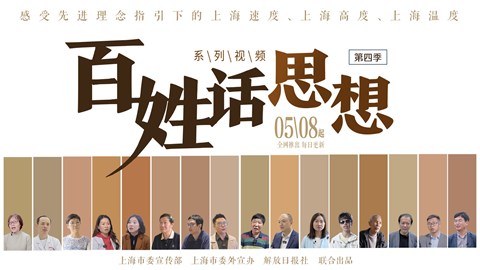Shanghai doctors recruiting deaf patients for innovative therapy
Shot by Jiang Xiaowei. Edited by Jiang Xiaowei. Reported by Cai Wenjun. Subtitles by Cai Wenjun.
Shanghai Ninth People's Hospital is recruiting patients all over the world for the world's first clinical trial on gene editing-based therapy for congenital deaf people.
About two in every 1,000 children are born with congenital hearing loss. There are 26 million people around the world with congenital deafness. About 30,000 children are born deaf in China each year with 60 percent of the cases related to genetic defects, seriously impacting their language, cognition and intelligence development.
There is no effective medication so far. The major method is cochlear implants, which have many shortcomings such as people's limited understanding of speech in a noisy environment and poor music perception.
"With the development of biomedicine, gene therapy is believed one of the most promising treatments to hereditary deafness. There are several strategies including delivering healthy genes into deaf people's inner ears to replace their sick genes. However, such therapy's effect can fade with time and patients may need to receive repeated injections to ensure hearing. Gene editing is a new approach to hereditary disease, which can edit pathogenic genes precisely and cure diseases radically in the genome," said Dr Wu Hao, president of Shanghai Ninth People's Hospital, who teams up with local scientists to develop a RNA based-editing therapy to cure hearing loss induced by OTOF gene mutation.

Dr Wu Hao, president of Shanghai Ninth People's Hospital, who teams up with local scientists to develop the world's first gene editing-based therapy for congenital deafness.

The research is published by world-leading Molecular Therapy.
The OTOF is a major deafness gene, whose mutation causes serious hearing loss and language disability among children. It is a leading reason for children with auditory neuropathy.
Wu's team has successfully developed a gene therapy targeting OTOF Q829X mutation with single viral delivery RNA-based editor. This mutation usually causes congenital profound hearing loss and is mainly detected in the Spanish population.
RNA-based editor is a cutting-edge gene-editing technology, which can modify gene sequence precisely and restore normal protein expression, without making permanent changes to the genome.
"The treatment has been testified efficacy and safety in animal experiment and now we are carrying out clinical trials on patients with such genetic mutation, which can be cured through one injection into the inner ear," Wu said. "Our research was published on leading journal Molecular Therapy."
Currently, the gene therapy has been approved for clinical trial by the hospital's ethics committee and doctors are recruiting children with OTOF Q829X mutation-associated deafness for the trial.
"We have big confidence that they are expected to restore a more natural hearing after the treatment," Wu said.

Tests on the gene therapy on rats with the same genetic mutation as human patients.

Dr Tao Yong shows how the gene therapy is injected into the inner ear of a rat.
Requirements for clinical trial:
Children between 1 and 16 years old.
Severe deafness.
OTOF Q829X mutation.
Having no internal auditory deformity, no inflammation of the ears within three months.
Abide to medical procedures of the clinical trial and follow-up checks and visit.
Benefits of clinical trial
All medical expense will be covered.
Reimbursement of participant's travel and hotel expenses.
After a flight to China, clinical research coordinator and interpreter arranged to guide participants.
Insurance for all trial participants.
Contact: taoyent@sjtu.edu.cn taoyent@gmail.com (doctor's mailbox for bilingual consultation)

A rat receives a hearing test in the research.















